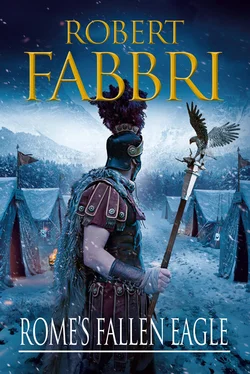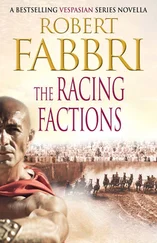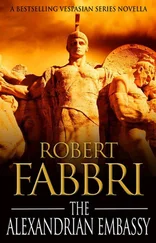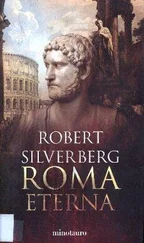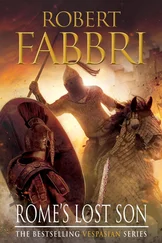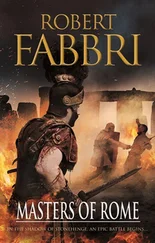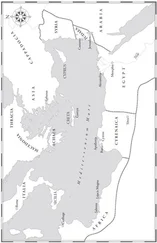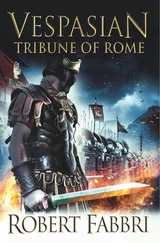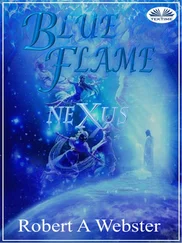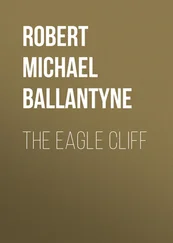Robert Fabbri - Rome’s Fallen Eagle
Здесь есть возможность читать онлайн «Robert Fabbri - Rome’s Fallen Eagle» весь текст электронной книги совершенно бесплатно (целиком полную версию без сокращений). В некоторых случаях можно слушать аудио, скачать через торрент в формате fb2 и присутствует краткое содержание. Год выпуска: 0101, Издательство: Corvus, Жанр: Исторические приключения, на английском языке. Описание произведения, (предисловие) а так же отзывы посетителей доступны на портале библиотеки ЛибКат.
- Название:Rome’s Fallen Eagle
- Автор:
- Издательство:Corvus
- Жанр:
- Год:0101
- ISBN:нет данных
- Рейтинг книги:4 / 5. Голосов: 1
-
Избранное:Добавить в избранное
- Отзывы:
-
Ваша оценка:
- 80
- 1
- 2
- 3
- 4
- 5
Rome’s Fallen Eagle: краткое содержание, описание и аннотация
Предлагаем к чтению аннотацию, описание, краткое содержание или предисловие (зависит от того, что написал сам автор книги «Rome’s Fallen Eagle»). Если вы не нашли необходимую информацию о книге — напишите в комментариях, мы постараемся отыскать её.
Rome’s Fallen Eagle — читать онлайн бесплатно полную книгу (весь текст) целиком
Ниже представлен текст книги, разбитый по страницам. Система сохранения места последней прочитанной страницы, позволяет с удобством читать онлайн бесплатно книгу «Rome’s Fallen Eagle», без необходимости каждый раз заново искать на чём Вы остановились. Поставьте закладку, и сможете в любой момент перейти на страницу, на которой закончили чтение.
Интервал:
Закладка:
Unfortunately, a short while later, it was reconfirmed: the sound of two sets of footsteps came from the tablinum at the far end of the atrium. Vespasian took an extra-large slug of his drink. Flavia and Caenis walked in together; Flavia with a bowl of soup and a loaf of bread and Caenis with a bottle of vinegar and fresh bandages.
In silence they ministered to Sabinus together, until his bowl was empty and his wound re-dressed. They then called for a couple of slaves to help them take him to his room.
When they returned they stood before Vespasian, still slumped in his chair, nursing his second cup of wine.
‘I shall go home now,’ Caenis said quietly.
Flavia looked contrite. ‘I’m sorry, husband, you were right to refuse to tell me anything. Caenis has guessed what has happened … why Sabinus is in Rome; and he did the right thing by Clementina. I know you would have done the same.’
Caenis walked past Vespasian to the door, laying a hand softly on his shoulder as she did so. She took her cloak from a hook in the vestibule, slung it around her shoulders and then looked back. ‘We both understand the importance of keeping this secret. We won’t say a word about this ever, Vespasian, not to anyone; will we, Flavia?’
‘No, my dear, we won’t; never a word.’
‘I hear that you found yourself in a bit of a tricky situation last night, sir,’ Magnus said conversationally as he accompanied Vespasian and Gaius down the Quirinal the following morning. His breath was faintly visible in the early morning air; a light drizzle fell from a heavy, grey sky.
Vespasian looked disapprovingly over his shoulder at Sextus and Marius pushing Sabinus, whose face was concealed under a deep hood, in the handcart. ‘I thought that it was only women who gossiped about the domestic woes of others.’
‘Don’t blame the lads; I heard all the shouting from outside so I asked them what was going on when they got out.’
‘It was a fearsome sight, my friend,’ Gaius opined, blanching at the memory. ‘One irate woman is bad enough, but a brace of them? Intolerable!’ Gaius shook his head, sucking the breath in between his teeth. ‘They were both standing there, fire in their eyes, bonded by a mutual sense of violation, with all past hatred and jealousy between them put aside, to face their common foe. Utterly hideous! Luckily I had some urgent correspondence to deal with.’
‘You mean you ran away, Uncle.’
‘Dear boy, it’s not my business to deal with your overly complicated domestic arrangements; especially when they’re united in an unnatural alliance of vengeance. That takes the sort of resolve found only in men rash enough to believe that they can go into a negotiation with nothing to bargain with.’
‘As you’re just about to do, senator,’ Magnus pointed out.
Gaius grunted uneasily and Vespasian smiled to himself despite the truth of Magnus’ observation. They had, indeed, nothing to offer Narcissus in return for Sabinus’ life; nothing, apart from the hope that he, Narcissus, would remember the two debts that he owed them. Ten years previously, Vespasian and his brother had kept the secret of a coded, treasonous letter, written in Claudius’ name — and with his connivance — by his deceased freedman Boter. They had shown it only to Claudius’ mother, the Lady Antonia; she had it read to a mortified Narcissus. He had vowed to keep a firmer hand on the affairs of his malleable but overly ambitious patron. Narcissus had expressed his gratitude to the brothers for their discretion in the matter — it was information that in Tiberius’ or Sejanus’ hands could have meant the banishment or execution of Claudius and the end of Narcissus’ career. He had promised to repay the favour when he could.
The second debt was a more ignominious memory and Vespasian still felt the shame of it. At the Lady Antonia’s behest he and his aristocratic friend Corbulo had murdered Poppaeus Sabinus, who had been financing Sejanus’ successor, Macro’s, bid for power. The deed had taken place in Claudius’ house, with Narcissus and Pallas’ help, during the exchange of Claudius’ debt of fourteen million denarii to Poppaeus for seven of his valuable estates in the province of Egypt. Claudius had been left very wealthy, retaining both the debt marker and the seven estates. This was the favour that Vespasian hoped Narcissus would repay. Although Narcissus had acknowledged his obligation to him at the time, Vespasian knew that there was no way that he could force the issue as it was completely deniable — for they had made it seem Poppaeus had died of natural causes.
These thoughts played around Vespasian’s mind as they trudged up the Palatine, in foreboding silence, until they arrived at the front of the palace complex.
Vespasian was shocked by the sight that greeted them: in the open space before the building, now very cramped owing to Caligula’s ill-considered extensions to Augustus’ once grand house, milled hundreds of senators and equites, stamping their feet and hunching their shoulders in the miserable weather. ‘What are they all doing outside in the cold?’ he wondered. ‘The atrium can’t be full yet.’
‘All of Rome wants to know how they stand with the new regime,’ Gaius suggested. ‘Magnus, stay here with Sabinus and the lads, we’ll go and see what’s happening.’
Vespasian and Gaius eased their way through the disgruntled crowd, offering greetings to rivals and acquaintances, until they saw the cause of the impasse: arranged in front of the main doors was a century of Praetorians, still, outrageously, in full military uniform. In front of them were four desks manned by imperial clerks to whom senators and equites alike were giving their names to be checked against a list of people due to be admitted that day. The look on the faces of those who had been turned away told of the indignation and humiliation felt by those of the highest classes being refused access to their Emperor by mere slaves.
‘Not even Caligula went this far,’ Gaius fumed quietly. ‘In fact, he positively welcomed people coming to greet him every morning.’
‘That’s because, being an immortal, he had no fear of assassination.’
Gaius and Vespasian turned round to see Pallas who had once more managed to catch them unawares.
‘Good morning, gentlemen,’ he said, again putting an arm around their damp shoulders. ‘I’ve been waiting for you in order to help Sabinus circumvent Narcissus’ new admittance policy. Where is he?’
Vespasian pointed through the crowd. ‘Back there with Magnus in a handcart; he can’t walk too well.’
‘I’ll have my men take them through a side entrance.’ Pallas signalled to a couple of clerks waiting on him to come closer. After a brief muted conversation, during which Pallas seemed to reiterate a particular point, they went off on their errand. ‘They’ll take him to my new quarters where he can wait until the interview. Now we should get you through.’
‘Is this going to happen every day?’ Vespasian asked as they moved towards the nearest desk.
‘Yes, only those with appointments will get through and then they will be searched for weapons by the Praetorians.’
‘Senators searched?’ Gaius huffed.
‘Julius Caesar would have done well to follow that policy,’ Vespasian observed, trying to lighten his uncle’s mood. ‘If he had we might be living in a different world today.’
Pallas remained expressionless. ‘I very much doubt it.’
Half an hour later, having finally got through to the expansive and imposing atrium — designed by Augustus to overawe foreign embassies with the sombre dignity and majesty of Rome — Vespasian was surprised by how few people were waiting to be seen. Their quiet conversations were almost inaudible above the splatter of the central fountain and the slapped footsteps of an excessive number of imperial functionaries walking to and fro with wax tablets and scrolls. He was relieved, however, to notice that in the two days since Caligula’s assassination most of the more vulgar decor that had so pleased the brash young Emperor had been replaced by the original, more subtle but exquisitely manufactured furnishings, ornaments and statuary that he had so admired when he had first seen the chamber.
Читать дальшеИнтервал:
Закладка:
Похожие книги на «Rome’s Fallen Eagle»
Представляем Вашему вниманию похожие книги на «Rome’s Fallen Eagle» списком для выбора. Мы отобрали схожую по названию и смыслу литературу в надежде предоставить читателям больше вариантов отыскать новые, интересные, ещё непрочитанные произведения.
Обсуждение, отзывы о книге «Rome’s Fallen Eagle» и просто собственные мнения читателей. Оставьте ваши комментарии, напишите, что Вы думаете о произведении, его смысле или главных героях. Укажите что конкретно понравилось, а что нет, и почему Вы так считаете.
